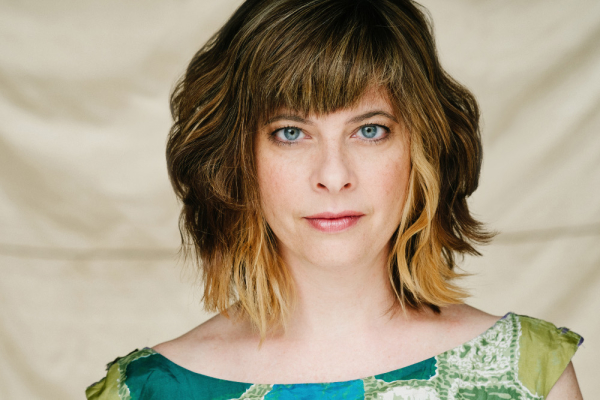The Nether playwright Jennifer Haley: 'What I'm writing about is already here'
The award-winning American writer’s play ”The Nether”, examining child abuse in a virtual world, has transferred to the West End

© Peter Konerko
What was the original inspiration for The Nether?
My playwriting teacher, Paula Vogel, used to say "write what you hate". I turned this over for a couple of years after graduate school; I did not know quite what it meant, but figured it had to do with writing something you were at least passionate about. I greatly dislike CSI-style television procedurals, with their pat interrogation scenes and the crime all wrapped up at the end of 40 minutes, so I decided to try to write a procedural for the stage.
I knew there should be an interrogation and wondered – what if someone is being questioned about something they've done in virtual reality? (I'd been writing virtual reality and video games for a while, so this was not a new topic for me.) Which took me to the next question – what activity is so awful, we don't even want people doing it online? That brought me to paedophilia and child abuse, and opened up a whole new world of ethics to explore. So the basic idea was pretty well-formed before I even started. The rest of it – the businessman, the detective, the Victorian realm, the little girl and the science teacher – all emerged in the first draft.
What were the major challenges of bringing the idea to life?
Maintaining an emotional angle in the interrogation scenes was challenging, as both [leading characters] Mr Sims and Detective Morris communicate first from the mind. Working out the thriller/mystery structure was incredibly challenging. I was able to slowly piece it together by having actors and directors poke holes in it during development workshops, until I'd tied up all the loose ends. For two years, the play was an interesting idea that didn't quite work because Mr Woodnut was only mentioned in Detective Morris's reports. Then Neel Keller, who directed the world premiere in Los Angeles, suggested I add an actor to play the part. I was resistant at first, which is funny to me now, as it's the ingredient that tied everything together.
Do you think it portrays a realistic vision of the future evolution of the internet?
Yes and no. I have no idea whether we will get to life-like experiences in virtual reality. It would probably require brain implants, and who knows how much of the population will be up for that. But with folks developing treadmills and harnesses, and the Oculus Rift (visual virtual reality goggles) technology being incorporated into video games and Second Life, I don't think we're far off at all from incorporating a visual, aural, and spacial sense of reality into our online interactions. But in some ways, what I'm writing about is already here. Plenty of people experience profoundly emotional relationships over the internet. Not unlike what they used to experience through correspondence. The imagination loves associates.
It deals with a sensitive and topical subject, child abuse. Were you conscious when you wrote it that you were tapping into a very current theme?
I imagine pedophilia has always been a current theme, but as time goes by, we become more capable of discussing it. I chose it because it served my intellectual premise, and then, at a certain point, thought 'ugh, what have I gotten myself into?' I had many conversations with myself about whether I should age up the girl in order to get the play produced, assuming that if I didn't, no one would touch it. But to my delight, many talented people and organizations stepped up, embraced the difficult material, and gave me the encouragement I needed to keep working through it. On this note I'm incredibly grateful to all of the young actresses who have bravely tackled the role of Iris – Keely, Maya, Brighid, Sophia, Isabella, and Zoe have been elemental to this piece.
Did you enjoy your collaboration with director Jeremy Herrin?
Tremendously. I did not arrive until the first day of rehearsals, so he had already put together many of the production elements, and it was wonderful to see the play reimagined by such a talented artist and leader. I did not expect to keep working on the play in London, but Jeremy' s input, and the work of the marvellous cast he put together, inspired me to keep sharpening the script. He and the actors were so generous with the process; they allowed me to restructure a scene three days before the Royal Court opening.
How do you think the play will go down with a West End audience?
I'm going to take a wild stab and predict that they'll both enjoy the mental roller coaster ride and the opportunity to drag such dark subjects into the light of discussion.
What prompted you to be a playwright initially?
I was an actress, but found most of the roles in which I was cast to be a bit thin. So I started writing plays with roles, female and male, that I would find interesting to inhabit.
Technology is a recurrent theme in your work – why does it interest you particularly as a subject?
What I find interesting is the way we use technology to explore diverse mental landscapes. As Woodnut effuses, "It's amazing what we have done using the materials of the earth. Not only have we built roads and cities, but we have created tools for our imagination." I love using technology as a storytelling means to expose our hidden lairs of fantasy of psyche.
The Nether runs at the Duke of York's Theatre until 25 April 2015












